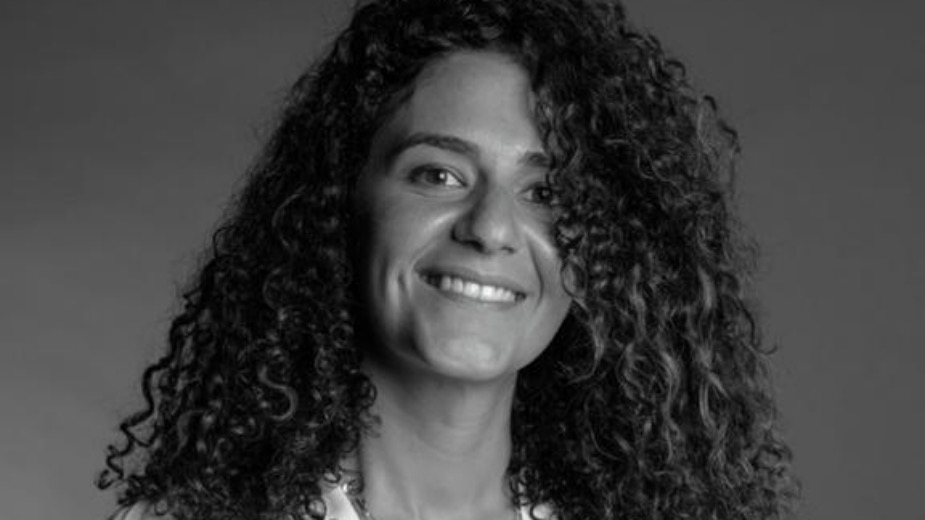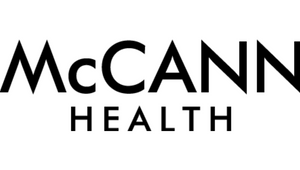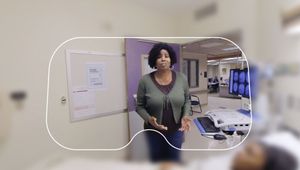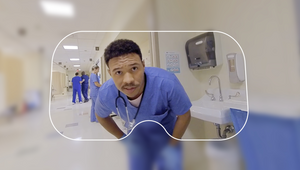
5 Minutes with… Karen Kamel

Healthcare and pharma advertising occupies an odd place in the industry – bound up in regulations and complex scientific details, it’s an area that is understandably cautious and circumspect when it comes to creativity. But, on the other hand, it offers the opportunity to use creativity to reach and help people facing a life-altering illness or to help people to spot symptoms early enough to save their life.
It’s a relatively young specialism in the Middle East, but Karen Kamel has been a formative force. An erstwhile pharmacist, Karen always harboured a passion for art and creativity and after paying her dues in the lab, she stumbled in communications. It was a place to combine her specialist expertise with a more people-orientated, creative career.
These days she heads up McCann Health in the Middle East and has seen the specialism broaden out and rise in prominence, particularly as non-healthcare brands seek to get into ‘wellness’ and, of course, as Covid-19 has put healthcare communications front and centre for everyone.
LBB’s Laura Swinton caught up with Karen to find out about her journey.
LBB> You started out your career as a pharmacist and moved to communications and advertising – so it seems you have a blend of the analytic and scientific with the creative and storytelling… How did these two sides of you manifest when you were younger?
Karen> It’s funny, when I applied for university I graduated from a German school in Cairo, I applied to do Fine Arts. It is completely different. I was interested in painting and drawing and doing things with my hands, arts and crafts, as well as being interested in pharmacology. My father is an anaesthesiologist, and I think the family was more into the science side of things. It’s great now because I feel like I’m combining both, the creative communication aspect but I also have the knowledge, the expertise and education that helped me grow in the field.
I started as a quality control analyst in a lab, and I felt it really wasn’t my thing; I can’t be just doing tests all day. So, I ventured into communications, and realised I really liked doing it. I did an MBA in communication and that’s where I am today.
LBB> So what were your first roles once you had that MBA under your belt?
Karen> Before doing the MBA I started in an agency, Publicis in Cairo. Then there was a pharma company that was a client of Publicis and they were looking for someone with a healthcare background. I was an account executive and I loved it. Two years down the line, I came across an MBA programme for people from non-communication backgrounds that was German speaking and it was offering scholarships. I got the scholarship and travelled to Germany. It all came together. After that I came back to the region, working with Omnicom, WPP and now with MCN and IPG.
LBB> As a scientific thinker, you probably don’t put much stock in the idea of luck, but everything really did seem to come together. What is it about the communications side of things that you find so satisfying?
Karen> We work across a lot of pillars, and a lot of it is about simplifying the science. When we work on campaigns that are about disease awareness, I think these are topics that are really close to or relevant to a lot of people, in a way that, say, an FMCG brand campaign might not be. Even if we’re talking to a specific target group, it becomes very, very relevant. I think the more creative we get in conveying a message to patients, the easier it becomes to engage and the more we can change their lives. We might be trying to ensure that they are adhering to medication, or helping them choose what is right for them, or helping them to manage their conditions. It is very rewarding.
LBB> Is there a big difference between how you speak to patients versus doctors?
Karen> It’s huge. And there’s also a difference when it comes to different specialities – so when we’re talking to an oncologist it is completely different to talking to a GP. How can we convey the message appropriately for the knowledge level that they have? If it’s too simple, an oncologist won’t even engage, but for GPs it’s about giving them the tools to talk to patients, and there are more creative elements there.
For patients, it’s much simpler. It’s ensuring that if it’s a new disease or they’ve been diagnosed with something, they understand what’s happening to their body even if they don’t have a scientific background. So, visuals, illustrations and infographics can really help.
LBB> From a regional perspective, how important is the local cultural context and how does that factor in how you work?
Karen> It’s very important to have the cultural nuances and to understand how people think here. A lot of it could be universal, for example how people would perceive different diseases. But here there are sayings, for instance, cancer is not called cancer; it’s called the ‘bad disease’. Everyone knows that terminology.
With screenings, for instance, there’s a huge barrier in that people prefer to have a disease and not know rather than open doors they don’t want to open. Maybe there are similarities in other markets, but we can see the differences here in how people perceive such matters. Also, we’re seeing the impact of things that used to happen in the past, inter-family marriages that cause more disease, and there’s a lot of knowledge around it that we need to look into. These insights are very specific to our region.
LBB> So, from a professional perspective this year must have been fascinating for you. Pharma communications issues are suddenly centre stage, whether it’s informing people about or reassuring people about vaccines or educating people about statistics and ‘R’ numbers and things… It looks like an extreme version of what you do day to day?
Karen> Yeah it was interesting because we would be sitting with friends, chatting, and they would be talking about clinical trials! You know, previously, no one would ever mention the word clinical trials! Suddenly everyone is talking about clinical trials and data!
We have a Global Scientific Council at McCann Health and it’s unique to us, so we have these regular meetings to share knowledge from different markets, compare notes about lockdowns and so on. You could see the advancements and the news from different companies, who was going to launch what. And from a consumer perspective, we saw the huge volume of information that was exchanged on a daily basis on WhatsApp. From a communications perspective, every brand wanted to talk about Covid and wanted to ride the wave. Some managed to do it really well, but also brands had a responsibility to tackle it in a meaningful way.
LBB> I imagine you had colleagues from other parts of the business knocking on your door! Have you found there’s more interest from creatives in coming to a healthcare agency, now that the language of healthcare is more prevalent, and people are starting to appreciate the value of healthcare communications?
Karen> Definitely. And we’ve seen how different brands have approached us for the first time to talk about hygiene and awareness. That was really big because it was brands that had never tackled anything like this.
There were also limitations in how you could communicate with the target audience. There was a lot of activity in telemedicine – a lot of brands wanted to venture into it and understand how they could add value to patients who were at home.
In terms of certain conditions, there was a really big impact because people could no longer go to hospital. A lot of testing, routine medication or check-ups were affected so we had to communicate around that. We also have, that’s unique to McCann, are the Truth studies. There was the Truth About Doctors, which was specifically about doctors’ behaviours during Covid. A lot of pharma companies moved into virtual webinars – previously they’d do face-to-face meetings with doctors and we saw that change, a whole shift in communications.
LBB> Looking to your own career, what have been the achievements that you’re really proud of?
Karen> Every campaign we launch is an achievement, especially when we get the results. For example, there was a colorectal cancer screening campaign where we identified three people with early signs of cancer. When you see that you’re impacting people’s futures it really touches you.
My professional perspective is that I’m proud of establishing a team, a passionate team that wants to go into healthcare communication. In our region, healthcare communication is not as established as in other markets. Seeing the mission and vision and the passion that we have is very rewarding to me.
LBB> There’s a bit of a joke in the industry that some advertising people don’t have a sense of perspective, that they believe what they’re doing is a matter of life or death… but when it comes to healthcare, it can be!
Karen> It’s really amazing. We work a lot with patients and talk with them and it gets very personal and emotional, and you understand things firsthand. You get to appreciate things differently and get a wider perspective on how you are helping those patients in their lives.
LBB> Was leadership something that you were always interested in or is it something that evolved organically?
Karen> It’s a tricky question because I had it in me. Looking back to my MBA, when we had group sessions I would go and motivate the team. In my previous role, I started WPP’s Ogilvy healthcare unit from scratch, it was just me. I was doing admin, I was doing cold calls, I was building the P&L and so on. It gives me a sense of achievement because I created something from nothing and experienced working at all of the different levels. Maybe that’s how organic leadership is to me, it’s a natural development to then lead a team, understanding every task and working together.
LBB> I’m really curious about how creatives and creativity fits in. Do creatives come to you from a place of interest or expertise? How do you onboard non-experts into a team that’s so specialised?
Karen> I think the key is passion. As long as the passion is there and they really understand how this area is different to the usual and they come with that mindset, that makes it easier for those who don’t necessarily have the healthcare background. Our needs are a little bit different and in certain campaigns we cannot go as bold as an FMCG brand. If I can see in their previous work that they’ve done two or three campaigns where they proactively worked on health, I can assess if this person is really into it. And after that, it’s just a matter of developing that understanding, working with clients. It’s the passion for healthcare that really matters.
LBB> What have been the challenging moments that you’ve had to overcome?
Karen> A big, big challenge that we sometimes face is when we have to scrap work. We have a lot of approval levels within our stakeholders and clients and so on. We can sometimes get to a point where you’re ready to launch, you have all the assets and then something changes, and you have to start from scratch.
For me, because I’ve been in this domain for a very long time, I understand this but the team has worked so hard and they’ve suddenly got to start again. I think this is a real motivational challenge. They get it but some moments can be harder – it’s something we manage together as a team.
LBB> It sounds like you’re super busy, but outside of work what inspires you? What’s your passion?
Karen> I think my kids are definitely inspiring. I have two kids, two boys, and I really try to do a lot of activities with them. They’re still so young, seven and four and a half. I learn from them every day.
I also enjoy painting. It’s something that I ventured into very recently. I applied to do Fine Arts when I was younger and now I’m doing this course. I feel like it declutters my mind, gives me space to think clearly and it’s three or four hours of not looking at my phone or answering emails. It’s really therapeutic.












